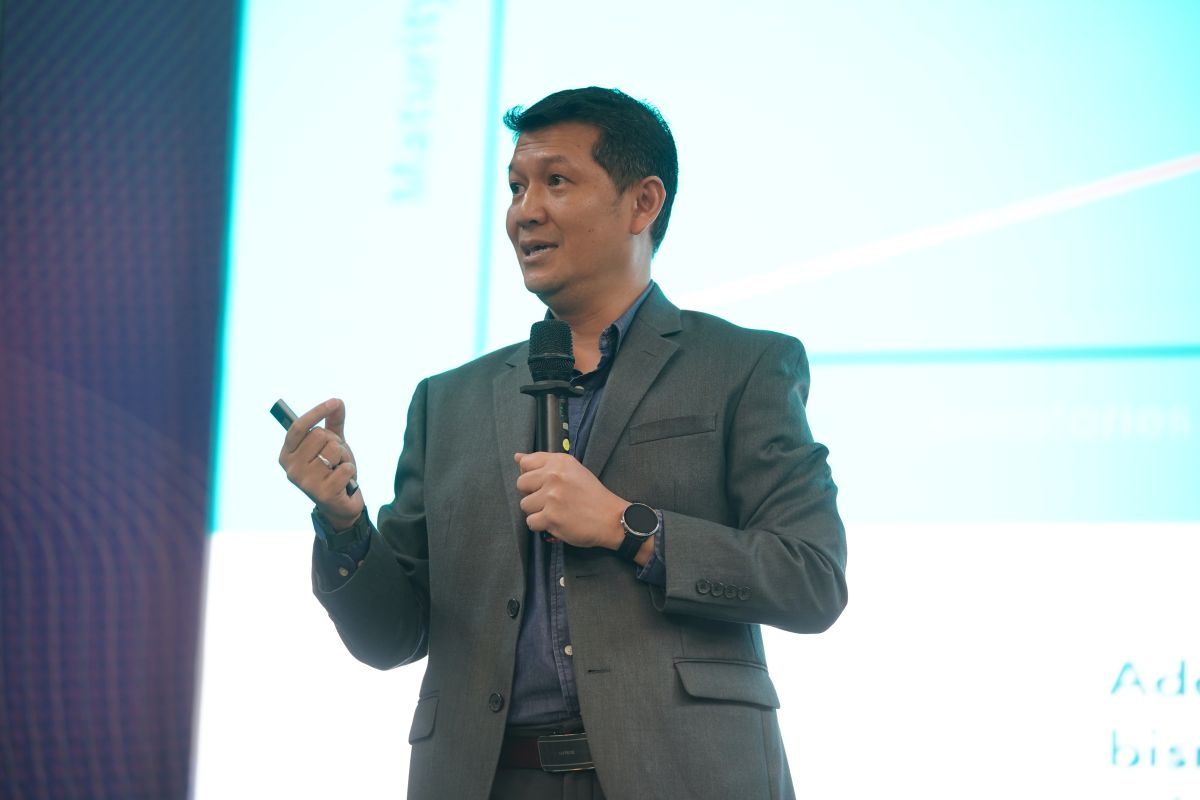A Good Water and Sanitation Management for A Better Indonesia
By Adi Permana
Editor Adi Permana

BANDUNG, itb.ac.id – Student Council of Infrastructure and Environmental Department (KMIL) of Bandung Institute of Technology (ITB) has finished carrying out the National Water and Sanitation Festival which was held on Saturday (02/16/20) at the West Hall of ITB. The event was held with the aim of increasing awareness of the Indonesian people, especially academics, who are related to waste and water treatment. This festival is also composed of several activities, including talk show, announcements as well as awards to winners of educational video competitions, and science exhibitions by students related to waste and water treatments topics.
With "Water and Sanitation as Determinants of Human Welfare" as a theme, the talk show at the National Water and Sanitation Festival presented four speakers. The names of the speakers include Ir. Prasetyo, M.Eng, as the representative of the Director of Sanitation and Residential Environment of The Public Works and Public Housing Ministry (Kementrian PUPR), Tri Dewi Virgiyanti, S.T., M.E.M., as Director of the Urban and Settlement Directorate of The Ministry of National Development Planning of Indonesia (Kementrian PPN-Bappenas), Ir. Yudha Mediawan, M.Dev.Plg., as Director of the Water Supply Systems Development at the Directorate General of Human Settlements of The Public Works and Public Housing Ministry, and Muhammad Fariz as Project Executive at Waste4Change.
The problem of waste, sanitation, and water management in Indonesia is still a critical issue. Muhammad Fariz said, in a day, if accumulated, the amount of waste produced by Indonesian could reach approximately 162 thousand tons per day, which is equivalent to five Borobudur temples. Consisitent with Tri Dewi Virgiyanti’s presentation, Indonesia is still stagnant with rank 131st for the provision of access to drinking water and rank 133rd for the provision of sanitation access when compared to other countries in the world. "In fact, compared to neighboring countries, Indonesian’s access to drinking water and sanitation is still the worst," Tri said.
The problems discussed are certainly, as expected, have bad implications for Indoensian. These bad implications cause public health problems and environmental damage coupled with financial losses. Based on The Public Works and Public Housing Ministry’s data, poor sanitation in Indonesia contributes 30% to the cause of the country’s under-five mortality rate. Poor waste management and sanitation, according to what Prasetyo said, also cost the country Rp 56 trillion per year. Of course, it is not a small amount of money. Therefore, according to him, the government must be serious in providing support related to activity or business that aim for optimization of waste handling and sanitation.
Actually, from 2015 to 2019, the government through The Public Works and Public Housing Ministry has built, at least, 125 units of Wastewater Treatment Plants (IPAL), 163 units of Feces Sludge Management (IPLT), and 176 units of Landfill Sites (TPA). However, the implementation is far from expectations. All facilities that have been built are not used optimally. Evidently, referrnig to the goverment’s data, the percentage of the use of two of the three types of facilities that have been built is still relatively low, 32.7% of the IPAL and 10.5% of the IPLT. The cause of the lack of use of facilities is likely due to damage to facilities or the user's inability to use the tools according to the correct standard.
Meanwhile, if we look at the landfill data, specifically, more than 90% of its use is still adapt open dumping system – throwing garbage/waste to the ladnfill without any managing system/selection process. This, once again, indicates that if development only focuses on the presence or absence of facilities, the problem of waste, sanitation, and water management will not be resolved. To solve it, instead of just facilities, greater contribution will instead result from good collaboration between the community and local government regarding how to operate, utilize, and maintain the existing facilities. "The problem of sanitation and waste is indeed complicated because it not only covers technical aspects, but also includes public awareness, the seriousness of government institutions, and coordination of all parties," said Tri.
Finally, according to Tri, in the future, technical factors will no longer be a challenge for the government in providing access to clean water, building sanitation infrastructure, and managing waste. The government will face more non-technical challenges such as increasing the work capacity of institutions that will provide those services (waste, sanitation, and water management) and manage them well. Then, infrastructure development, especially waste, sanitation, and water management facilities, may no longer be built uniformly in all regions of Indonesia but must be adjusted to the characteristics and needs of each region. For the development to be successful and sustainable, the government must also be able to support with adequate funding allocation. No less important, the Indonesian government must start to promote clean and healthy lifestyles to be applied to its people as the start of the culture of good water and waste management towards achieving a better Indonesia.
Reporter: Karimatukhoirin
Translator: Ferio Brahmana
Translator: Ferio Brahmana



.jpg)

.jpg)

